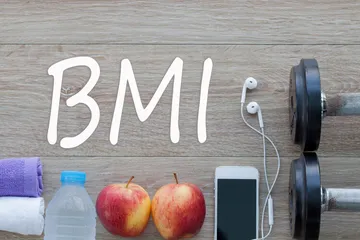What is the relationship between life expectancy and weight? After the age of 60, the closer your weight is to "this number", the healthier you will be.
As the saying goes,"It's hard to buy a lot of money and you get thin when you grow old." Since middle age, Aunt Zhang has consciously controlled her weight. She has only eaten fruits and vegetables for a long time, and her body has become slimmer and slimmer. The sisters are envious when they see it.
But what Aunt Zhang didn't expect was that as she got older, osteoporosis also came to the door. One year after menopause, she also experienced bone pain throughout the body. Especially once when she was playing with her grandson, she accidentally twisted her waist. She was diagnosed with a three-level lumbar compression fracture and required surgical treatment. The doctor said that Aunt Zhang's thinness is unhealthy, and she needs to pay more attention in the future to balance her diet.

1. Research: The elderly are more dominant if they are slightly overweight. In 2022, a prospective cohort study from Shi Xiaoming's team at the China Center for Disease Control and Prevention was published in the authoritative journal "Nature Aging". The study lasted for 20 years and finally found that among people aged 80 and above in China, individuals with heavy weight (BMI ranging from 24.0 to 31.9) may enjoy better health and longer life expectancy.
Studies have pointed out that elderly people with a BMI between 24.0 and 31.9 not only have the longest life expectancy, but also have the lowest mortality rates from all-cause and cardiovascular/non-cardiovascular diseases.
Compared with people with normal weight (BMI 18.5-23.9), individuals with lower weight (BMI less than 18.5) have an approximately 30% higher risk of death and disability in daily life, while the risk of overweight and mildly obese people is reduced by approximately 20%. This means that for elderly people without underlying diseases, mild obesity may not be a bad thing, while "sarcopenia" that may be caused by low weight may pose greater health risks.
In addition, European scientists found in a study covering hundreds of thousands of elderly people that there is a "U" type correlation between life expectancy and weight: elderly people who are underweight or overweight have higher mortality rates, while mildly obese elderly people have a longer survival period.
However, this does not mean that we need to remain slightly fat all the time. A 73-year study published by Ohio State University in the Annals of Epidemiology showed that people who maintain a normal weight when they were young and slightly fatter when they were older actually had lower mortality rates.

2. What is the most appropriate weight? How to judge? In summary, research highlights the importance of weight management at different life stages and its impact on health and longevity. So, what harm will being too fat or too thin do to the body?
Studies have shown that being overweight and obesity increase the risk of developing coronary heart disease, type 2 diabetes, breast cancer in postmenopausal women and high blood pressure in children. Low weight weakens the body's ability to resist disease and trauma. It also increases the risk of illness, reduces quality of life, and increases the risk of death.
Zhang Qian, a nutrition expert at Beijing Tongren Hospital, once said that for people aged 60 and above, people with a BMI in the overweight range (i.e. 25 - 29.9) have the lowest mortality rate, even 6% lower than people with a BMI in the normal range (18.4 - 24.9).
Currently, the most commonly used indicator to assess weight is body mass index (BMI).
The formula for calculating BMI is: BMI (body mass index)= weight (kg) ÷ the square of height (m) According to the BMI index, the weight classification is usually as follows: lean: BMI<18.5; normal range: 18.5 ≤ BMI ≤ 24.0; overweight: 24.0 ≤ BMI ≤ 28.0; obesity: BMI ≥ 28.0.
Trying to calculate your own BNI index and adjust it based on standards will help us live healthier lives.

How to maintain a stable weight after the age of 30 or 50?
The deputy chief physician of the Orthopedic Department of Yangzhou University Affiliated Hospital emphasized that as we age, maintaining a stable weight becomes particularly important. As the years go by, changing your body shape becomes more difficult. If you feel that your weight is not ideal, it is recommended to start adjusting from the age of 40 to 50 years old. Don't wait until you are old to consider maintaining your body.
1. Appropriate weight, whether it is too thin or too fat, is not ideal. Maintaining your figure is crucial. Eat size should be properly controlled to avoid overeating, but it is not advisable to eat too little. Eating until you are full every meal can not only avoid excessive hunger, but also control fat intake.
2. It is unhealthy to consume large amounts of meat food in a balanced diet, but it is not enough to eat light food alone. The intake ratio of meat and vegetables should be maintained at a reasonable level and should not be vegetarian every day. Moderate intake of meat is beneficial to calcium supplementation and muscle strength. It is recommended to choose healthier meats such as fish balls, shrimp, shredded lean meat, and pork ribs, and avoid eating greasy red meat and bacon to protect the stomach.
3. Appropriate exercise is the key to maintaining body shape and is suitable for all ages. Even emaciated elderly people do not need to worry too much about the injuries caused by exercise. Proper exercise not only strengthens bones and muscles and strengthens your body, but also helps maintain your body shape by burning calories.
4. Regular weight monitoring Many people lack the habit of regular weighing, but for older people, regular weight testing is very necessary. For example, measure it once a week to understand weight changes and adjust in time. For middle-aged and elderly people who are overweight, developing the habit of regular weighing can help improve self-discipline, reduce excessive eating, and thus control weight more effectively.

As you get older, maintaining a suitable weight and a healthy lifestyle becomes particularly important. Only by actively adjusting living habits can we ensure that we can still enjoy a healthy and energetic life in the years to come.
Reference: [1]"Who is more likely to live a long life, a fatter old man or a leaner old man?". Health Times. 2023 -05-01 [2]"The relationship between life expectancy and weight discovered". Elderly Daily. 2022 -05-14 [3]"After the age of 50, is it better to be fat or thin? Research found that people with this weight characteristic are more likely to live to 90 years old!" Health Times.2023-09-21 Reprinting is prohibited without the author's permission and authorization